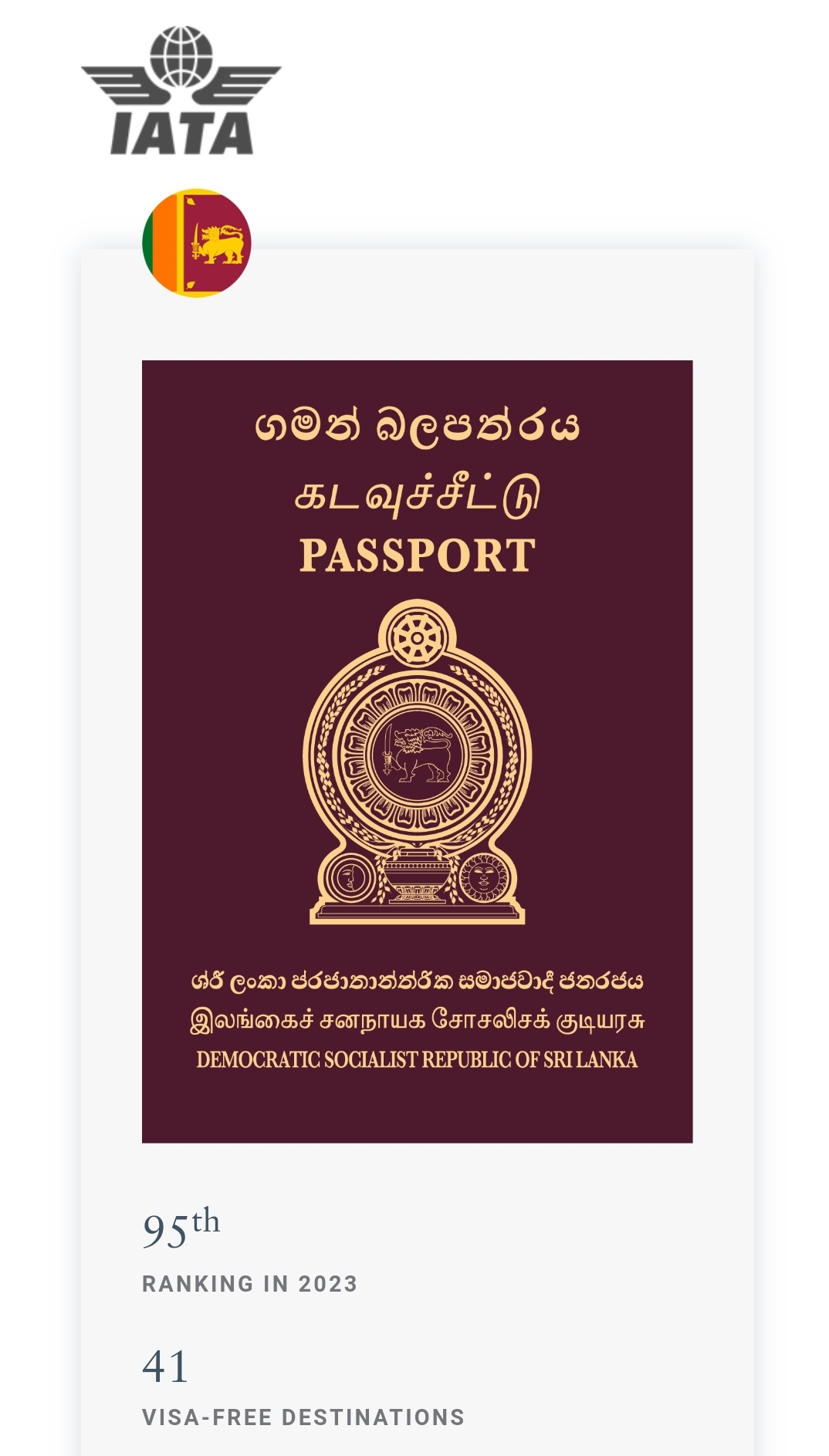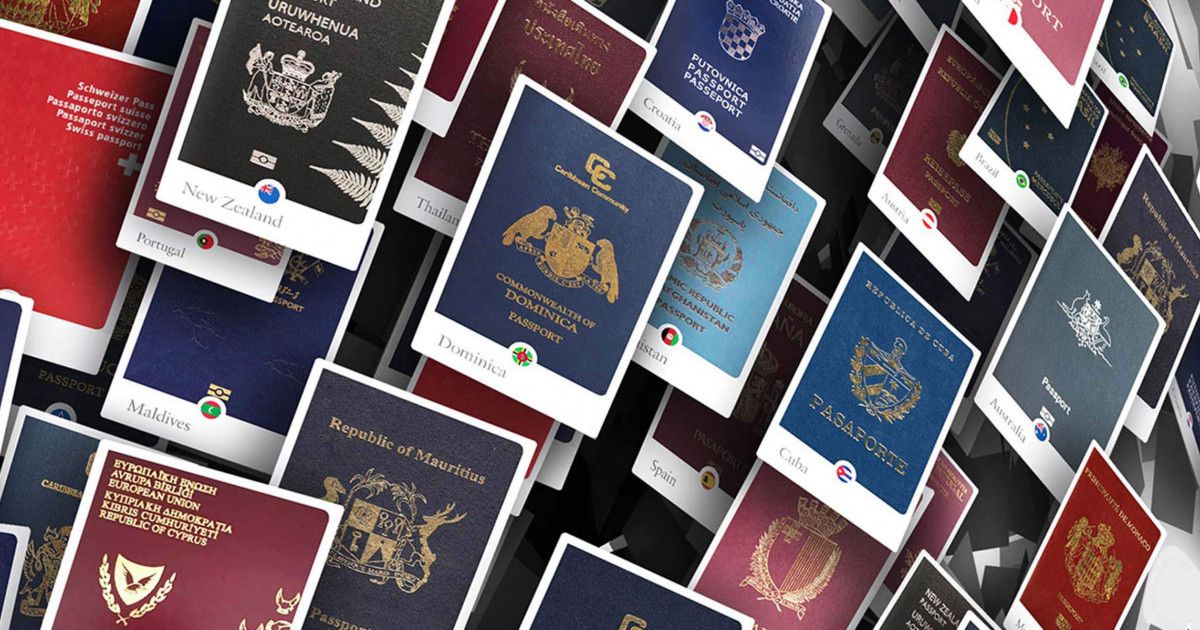Japan has been knocked off the top spot on the Henley Passport Index for the first time in five years and bumped into 3rd place, according to the latest ranking, which is based on exclusive and official data from the International Air Transport Association (IATA).
Singapore is now officially the most powerful passport in the world, with its citizens able to visit 192 travel destinations out of 227 around the world visa-free. Germany, Italy, and Spain all move up into 2nd place with visa-free access to 190 destinations, and Japanese passport holders join those of six other nations – Austria, Finland, France, Luxembourg, South Korea, and Sweden – in 3rd place with access to189 destinations without a prior visa.
The UK appears to have finally turned the corner after a six-year decline, jumping up two places on the latest ranking to 4th place — a position it last held in 2017. The US, on the other hand, continues its now decade-long slide down the index, plummeting a further two places to 8th spot with access to just 184 destinations visa-free. Both the UK and the US jointly held 1st place on the index nearly 10 years ago in 2014 but have been on a downward trajectory ever since. Afghanistan remains entrenched at the bottom of the Henley Passport Index, with a visa-free access score of just 27, followed by Iraq (score of 29), and Syria (score of 30) — the three weakest passports in the world.
The general trend over the history of the 18-year-old ranking has been towards greater travel freedom, with the average number of destinations travelers are able to access visa-free nearly doubling from 58 in 2006 to 109 in 2023. However, the global mobility gap between those at the top and bottom of the index is now wider than it has ever been, with top-ranked Singapore able to access 165 more destinations visa-free than Afghanistan.
Dr. Christian H. Kaelin, Chairman of Henley & Partners and the inventor of the passport index concept, says only eight countries worldwide have less visa-free access today than they did a decade ago while others have been more successful in securing greater travel freedom for their citizens. “The UAE has added an impressive 107 destinations to its visa-free score since 2013, resulting in a massive leap of 44 places in the ranking over the past 10 years from 56th to 12th position. This is almost double the next biggest climber, Colombia, which has enjoyed a jump of 28 places in the ranking to sit in 37th spot. Ukraine and China are also among the Top 10 countries with the most improved rankings over the past decade. Far more than just a travel document that defines our freedom of movement, a strong passport also provides significant financial freedoms in terms of international investment and business opportunities. Global connectivity and access have become indispensable features of wealth creation and preservation, and its value will only grow as geopolitical volatility and regional instability increase.”
America’s diminishing passport power
Of the countries sitting in the Top 10, the US has seen the smallest increase in its score on the Henley Passport Index over the past decade, securing visa-free access to just 12 additional destinations between 2013 and 2023. Singapore, by comparison, has increased its score by 25, pushing it five places up the ranking over the past 10 years to number one spot.
Commenting in the Henley Global Mobility Report 2023 Q3, released today alongside the latest index, Greg Lindsay, leading global strategist and urban tech fellow at Cornell Tech’s Jacobs Institute, says that from a purely mechanical perspective, “the story is a simple one — by more or less standing still, the US has fallen behind. While its absolute score has in fact risen over the last decade, the US has been steadily overtaken by rivals such as South Korea, Japan, and Singapore. America’s relentless slide down the rankings — and unlikelihood of reclaiming the highest position any time soon — is a warning to its neighbor Canada and the rest of the Anglosphere as well.”
Former career diplomat with the U.S. Department of State and a senior non-resident associate at the Center for Strategic and International Studies, Annie Pforzheimer, points out that US’s static state of affairs is likely to remain “due to the lack of a demand from inside the US for a change in policy, the extreme political risk for any group or politician who unwittingly facilitates travel by a terrorist, and the fact that tourism has surged post-pandemic anyway, even with a restrictive visa waiver program. Unfortunately, that status quo, over time, may well contribute to a decline in US soft power if businesses struggle to invite partners to trade shows and meetings, tourists encounter needless application delays and look elsewhere, and open xenophobia erodes the public reputation of the US as a world leader.”











